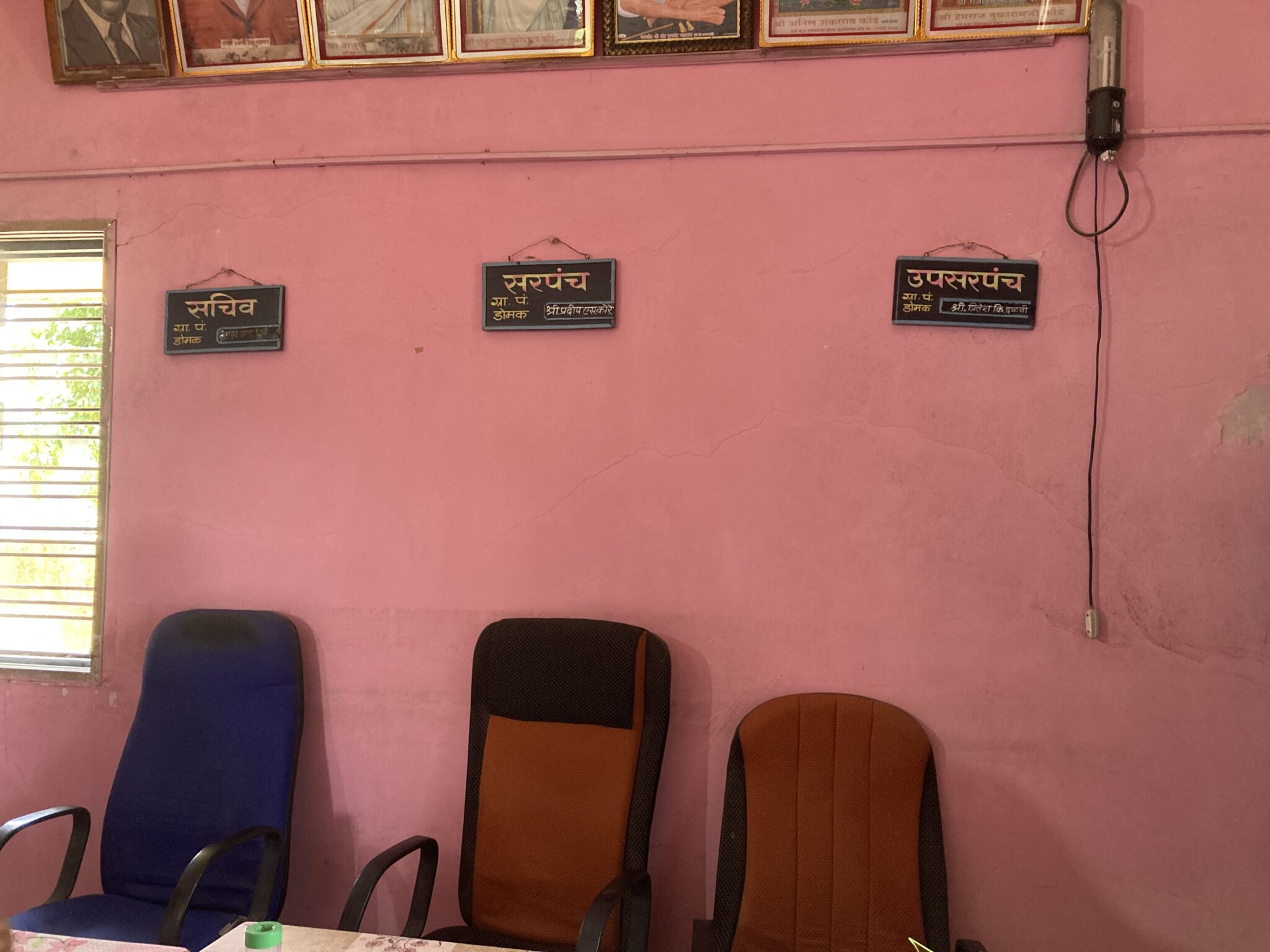Gender, Elections, and Elite Capture: A natural policy experiment in rural India

Record Office in India. Credit: Alyssa Heinze.
Study Context
Despite women’s increased political representation globally, recent evidence shows that they often face gendered barriers to political influence even after their election (Tolentino and Cruz forthcoming, Brulé et al 2020, Chhibber 2002). Particularly in developing settings with high levels of gender inequality, these barriers can take the form of political capture; male elites encroach on the political power of elected women (often elected via a quota), at times illegally taking decisions in their place (Brulé et al forthcoming, Syll et al 2022). Recent research highlights the role of the institutional design of government – the way that policy decisions are made, and elections take place– in exacerbating or mitigating existing gender inequalities. How might electoral design actively take into consideration gender differentials in power among elected officials, to ensure that women elected to office are actually able to influence policy?
Alyssa Heinze (Political Science) will evaluate a natural policy experiment in the structure of local elections in the western Indian state of Maharashtra. In 2017, the state changed its election system for local village councils from indirect elections (previously nominated by the village council) to direct elections (elected by the village). She asks: What is the impact of the structure of local elections on gendered political capture?
Study Design
Alyssa will use the funds to conduct the following scoping work during Summer 2022
- Conduct informational interviews with election commission officers to further understand the rationale behind the policy change, as well as the nature of local elections.
- Meet with bureaucratic officials in all districts to collect administrative data on the state of Maharashtra’s village councils in order to build a database for the state of Maharashtra which has each village council and its relevant election-related covariates.
- Conduct small-n, qualitative fieldwork in between 10-20 villages in order to develop further qualitative insights about the processes by which the type of election matters for gendered political capture.
Results and Policy Lessons
Alyssa found that directly elected council presidents enjoy relatively more authority when compared with indirectly elected presidents.
Regarding the mechanisms through which this is gained, Alyssa found evidence suggesting that directly elected presidents are able to govern with the understanding of a mandate from the public while indirectly elected presidents don’t have the same political and social capital. Secondly, Alyssa presents evidence (qualitative and quantitative) showing that selected presidents resign from their positions at a much higher rate, suggesting that these executives govern at the discretion of local elites and can be coerced into resignation.
The results suggest that simple changes in the design of democratic institutions can have profound effects on the way politicians govern. In this case, direct elections would provide more governing freedom and lower liklihood of elite capture than a selective system.

